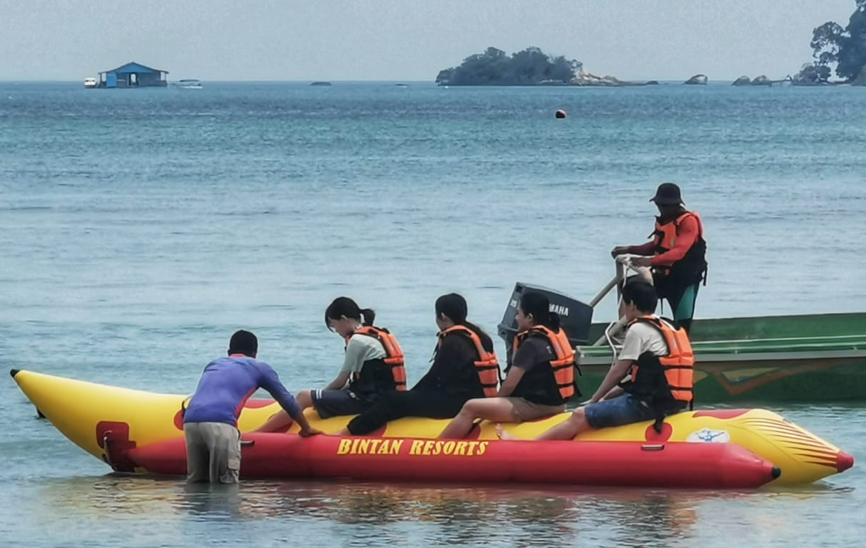The family of the granddaughter of Australian Olympic swimmer Faith Leech has launched a formal complaint with Victoria’s Education Department after the young girl failed to qualify for a sporting event, having finished behind a transgender student in a preliminary race meet.
The 11-year-old runner, known as Emily, had placed third in a regional Victoria school’s inter-school competition, according to Sky News.
Only the top two competitors were offered a spot in the regional track and field championships, with Emily finishing behind a transgender runner.
Her father has now issued a complaint to Victoria’s Department of Education, requesting that his daughter be allowed to compete in the regional finals.
He added that while he supported inclusion, he raised concerns about fairness in women’s sport.
‘My formal complaint under the guidance of the School Sport Victoria’s Complaints and Grievances Policy is that children competing in athletic events should be considered to proceed to the next level of competition based on their sporting ability, achievements and sporting merit rather than an ideology, especially at a Primary School level,’ her father wrote in a letter obtained by Sky News.
The father of an 11-year-old girl who failed to qualify for a regional race in Victoria because she was beaten by a transgender athlete has issued a complaint to Victoria's Department of Education
‘The outcome I would like to request from this complaint is that my daughter Emily is given the opportunity that she rightly deserves and is allowed to compete at the regional finals.
‘While I fully support inclusion and the right of all students to participate and understand the current policy, I am concerned about fairness in competition, particularly for young women like Emily who are striving towards serious sporting achievements and that this policy may unintentionally limit Emily and other young women athletes opportunities to progress in athletics and compete on an equal playing field in the future.’
Emily’s family requested that her last name is not shared.
However, the father’s request has since been rejected by the Victoria Department of Education's executive director of Statewide Programs, Brendan Rigby.
In response to the letter, Mr Rigby stated that pursuant to current inclusion guidance, students under 11 are allowed to compete in events ‘where they feel most comfortable.’
‘I recognise the effort and commitment that goes into preparing for these events, and I understand how important this opportunity is for Emily and your family,’ Mr Rigby explained in a response letter.
He added: ‘The Invitations Policy outlines the circumstances where a student may be offered a place. Based on the information provided, Emily’s circumstances do not meet the criteria for an invitation on this occasion.’
Emily's grandmother, Leech, starred for Australia at the 1956 Melbourne Olympics at the age of 15. She teamed up with Aussie legend Dawn Fraser to win a gold medal in the women's 4x100m freestyle relay.
The student is the granddaughter of Australian swimmer Faith Leech (pictured) who won a gold medal and a bronze medal at the 1956 Melbourne Olympic Games
Leech would later go on to finish behind Fraser in the 100m freestyle, picking up bronze.
A spokesperson from the department told Sky: ‘Victorian schools share a commitment to provide a positive, supportive and inclusive environment for students to participate in school sports.’
Daily Mail has contacted Victoria’s Department of Education for further comment.
School Sport Victoria (SSV) has issued guidance stating that it is ‘committed to providing a positive and safe environment for students. SSV values inclusion and participation and wants to provide all students with access to school sports opportunities.'
SSV added: ‘The guidance encourages all students to take part in SSV activities in the way they feel most safe and comfortable.'
The guidance also identifies when students may not be able to take part in a particular event, listing multiple circumstances when this might apply. Those include when strength, stamina or physique of the competitor might come into consideration or in high-contact sports. The rules apply to competitive sports and when the student is over 12 years old.
The decision by the Victoria Department of Education to refuse Emily the chance to compete at the regional event has infuriated some, including Stephanie Bastiaan, the Head of Advocacy at Australia’s Women’s Forum.
‘These dreams are being crushed over guidelines because she has to compete against a male student in a female competition and it's unfair and it's wrong,’ Bastiaan told Sky News.
‘Girls are being discriminated against on the basis of sex in this scenario… they are missing out on opportunities to go ahead and compete because of so-called ‘inclusion’. It’s at their exclusion.’
✍️ Yesterday, I wrote to South Australian Premier @PMalinauskasMP asking him to protect South Australian school girls.
📚 The Department of Education policy states that students can play sports and use change rooms, bathrooms, and dormitories that align with their gender… pic.twitter.com/9GGOGhZkRl
Head of Advocacy at Australia’s Women’s Forum, Stephanie Bastiaan, criticised the Department of Education, claiming that the dreams of young female athletes were 'being crushed because of the department's guidelines'
It comes after World Athletics chief Sebastian Coe announced in 2023 that the governing body would be banning transgender athletes from competing in women’s events to ‘protect the female category'
‘If there was any scenario where they should have allowed a special consideration to be made so she could have pursued her dream as an athlete, this was it.’
In elite athletic competitions, transgender athletes are no longer allowed to compete in women's events governed by World Athletics after the governing body's chief, Sebastian Coe, announced that a ban would be implemented to ‘protect the female category.’
It comes after Bastiaan had penned a letter to South Australian Premier Peter Malinauskas earlier in September, expressing concerns on behalf of the Women’s Forum Australia about their current policies relating to fairness in sport as well as privacy and safety in school facilities.
‘The Department’s policy that all students may participate in competitive school sport based solely on gender identity - and that boys who identify as girls can therefore compete in female competitions - is incompatible with the principles of fairness and safety in sport,’ she wrote.
‘Girls deserve the opportunity to compete on a level playing field, free from both physical and competitive advantage.
‘The removal of single-sex categories not only undermines fairness but also raises serious safety concerns, as biological sex differences in strength, speed and size can increase the risk of injury to female athletes. Without sex-based protections, girls may be discouraged from participating in sport altogether.’
Earlier this year, parents at a Catholic School in South Australia were left outraged after a transgender student broke multiple records during the school’s annual sports day.
A father of one student told News.com.au that ‘the entire day was marred’ after the student won the ‘majority’ of events.
'A lot of parents with kids competing, they felt essentially that the school was wronging their kids. In the name of fairness, they were making it completely unfair for 10 or 15 or 20 other girls.'
Another father revealed to the outlet that several parents had contacted the school. He told the outlet: ‘Physically, boys will be able to outcompete girls, hence the need for male and female sports.’
Studies have found that prior to puberty, boys present greater physical attributes compared to girls across tests, including aerobic fitness, strength, speed and agility.
Last February, US President Donald Trump signed an executive order preventing transgender women from competing in female sporting categories. As part of that, the order will see the government liaise with the Department of Education to clamp down on non-compliance of the order.
However, in July the US Supreme Court agreed to review the legislation and establish whether state laws can ban transgender athletes from competing in girls’ sports.
Some, though, have hit back against moves to ban trans athletes from competing in women’s sports.
Josh Block of the American Civil Liberties Union told the BBC: ‘Categorically excluding kids from school sports just because they are transgender will only make our schools less safe and more hurtful places for all youth.’

 4 months ago
64
4 months ago
64

















































